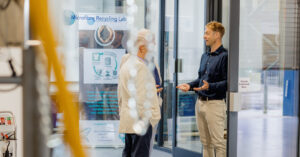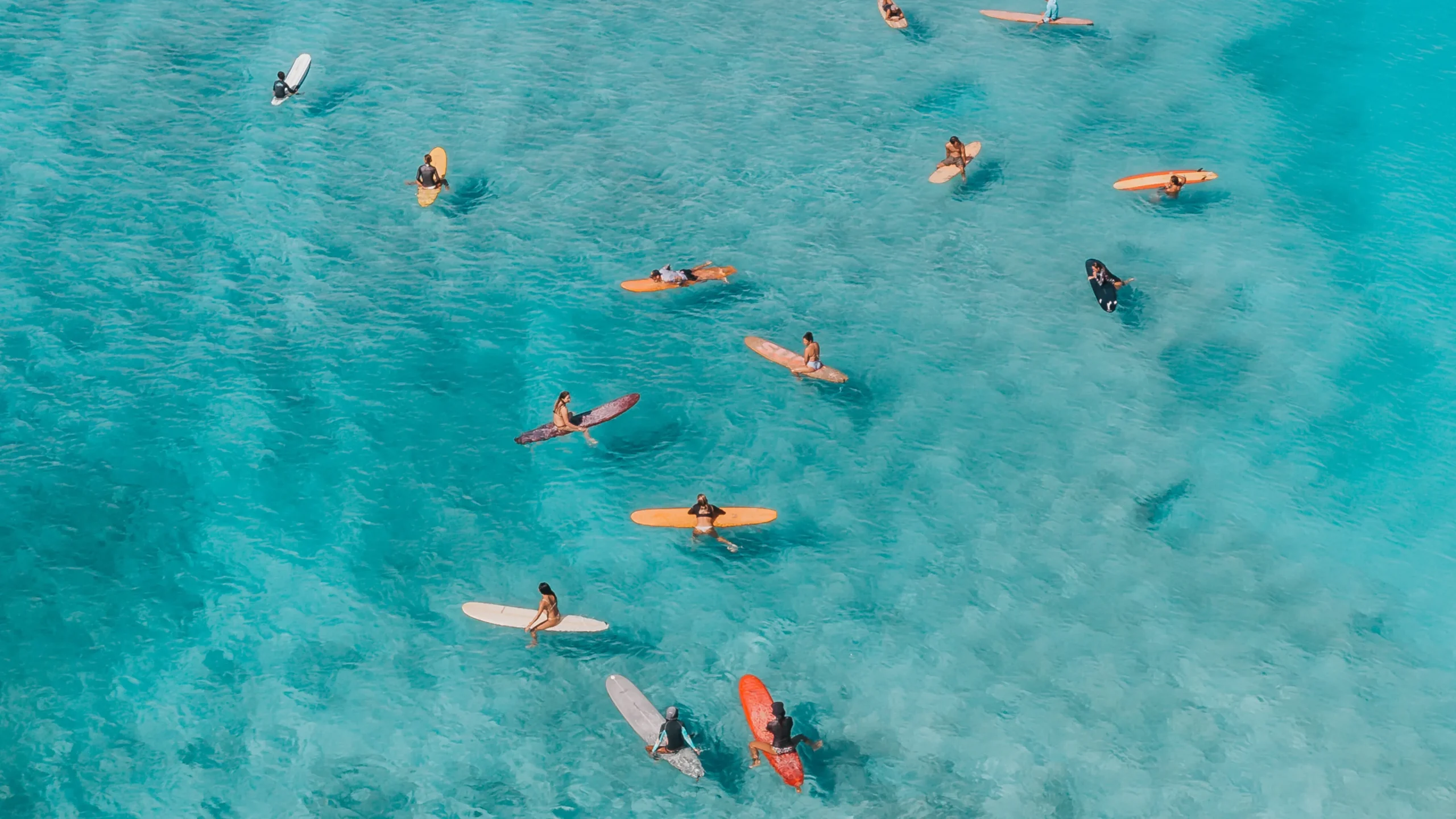
The Next Chapter for Cleaner Seas Group: Opening the World-First Microfibre Recycling Centre.
After years of planning, problem-solving and a fair bit of Cornish grit, we’ve finally done...

Monty Halls is a broadcaster, speaker, naturalist, former Royal Marine, marine biologist, travel writer and leadership specialist. His experience covers over two decades of leading teams in some of the most remote environments on earth, presenting wildlife and adventure documentaries, and working with blue chip companies both in the UK and overseas.
The Cleaner Seas team met Monty Halls by chance a few months ago and kicked off an enduring relationship forged over a shared concern for the issues facing our oceans, how to tackle these issues and a shared sense of adventure.
Cleaner Seas feature in Episode 1 of Monty’s new digital docuseries Generation Sea Change.
The first episode, Spin Cycles and Life Cycles features our very own CEO Dave Miller and Indi the microfibre filter.
You can watch the series to date HERE.
We caught up with Monty aboard his amazing sailing boat the good ship Sobek to ask him some questions about his latest endeavour.
1. What is Generation Sea Change?
The aim of the project is to inspire a new generation of marine advocates, conservationists, and change makers. We’re setting out to meet as many inspiring scientists as possible, individuals and communities who’ve come up with game changing initiatives and telling their stories. We hope by doing so it’ll inspire others to get stuck in, and lead to similar projects being created in the UK and internationally.
2. What inspired you to want to record such a series?
My kids! It just seems to me that the white noise of the media is constantly negative about the parlous state of our marine environment. That’s fair enough – there are challenges aplenty – but what message does that pass on to the next generation? That’s there’s nothing we can do? That’s decline is inevitable? I knew of enough inspiring schemes and individuals to know that simply isn’t true, so wanted to show Isla and Molly – my wee lasses – that there are good people out there doing great things.
3. How did you manage to find the ‘Ocean Heroes’ you are featuring on your series?
It was a combination of us finding people, and people finding us. There’s something of a revolution going on around our coasts, an uprising if you will, where ordinary people are taking conservation matters into their own hands. So we approached a few folks we knew locally, and put the word out on the grapevine that we were looking for citizen scientists, innovators, and community groups. We were then inundated! I’d say we’ve told 25% of the stories we could have done – so there’s plenty more for series two (and three and four).
4. Why did you decide to launch the series on digital channels?
This was initially a Channel Four series, but they couldn’t quite scrape together the budget (and fair play to them, they really did try). When they dropped it, we were so invested in the messaging, the people, and the voyage that we decided to do it anyway. One of the joys of film production nowadays is the number of platforms available, so we chose You Tube as a home for series one.
5. Tell us a bit more about the episodes to come? What can we expect from Generation Sea Change?
Well, there’s eight main films – which we’ve called our Hero material! They cover microplastics, sewage, noise pollution, garbage, sea grass, rat eradication, blue fin tuna tagging, and the work of the Marine Biological Association. They’re all very different – some purely community based, and some more science orientated. They’ve all got one thing in common though – driven, focused, determined individuals making a genuine difference with their work.
We also shot some shorter films enroute, just tracking the journey and telling the tale of folks we met and their own schemes. All in all, there’s about thirty films – a decent amount for one summer of filming I’d say.
6. How have you managed to produce a series independently?
We’ve been lucky to be supported by two sponsors – Raymarine kitted out our vessel with amazing, state of the art gear. And Royal Caribbean Group came in at short notice – showing real chutzpah – and financially backed the films and the voyage. They’ve been wonderful, helping us with branding, logistics, and general advice.
It must also be said that so many individuals and smaller companies have helped us out – marinas, PR companies, kit manufacturers, local hospitality. We’re really, grateful for the support, it’s made the project possible really.
7. What have you learnt in the process of filming Generation Sea Change?
In broad terms we’ve learned that the challenges are indeed formidable, but also that the solutions are genuinely viable. Many of the facts have been jaw dropping – 700,000 microfibres released every time you push the button on your washing machine, a 2600% increase in sewage being dumped in our shallow seas and rivers .
We’re absolutely thrilled Monty has come aboard to help us raise awareness of the microfibre issue affecting our environment, our marine life and our health.If you haven’t done so already, check out Monty’s amazing new digital docuseries and sign up for updates to be the first to watch new episodes https://www.youtube.com/@GenerationSeaChange
Or be more like Monty and install an Indi Home Microfibre Filter today.
Get monthly ocean news, offers, events and updates on our mission.
By clicking subscribe, you agree to our Terms and Conditions.
